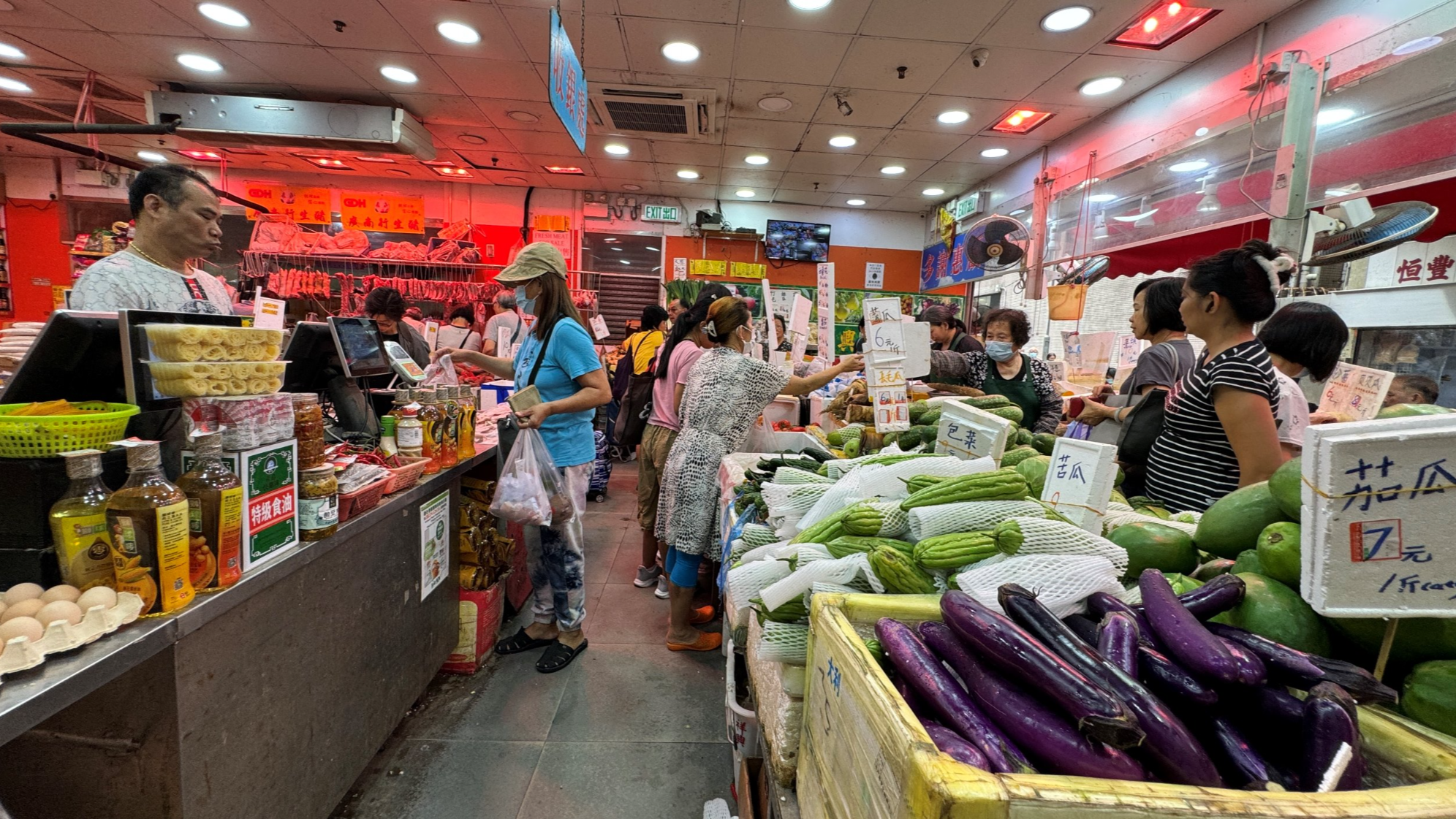
Hong Kong’s overall consumer prices rose by 1.4 percent on a yearly basis in March, a slight dip from the 1.7 percent average rise recorded in January and February. Experts predict that international trade tensions will not have an immediate impact on local prices.
The Composite Consumer Price Index showed a year-on-year increase of 1.4 percent in March, similar to the rise seen in February, according to a Wednesday release by the Census and Statistics Department of the Hong Kong Special Administrative Region government.
The smaller increase in March 2025 was mainly due to the decreases in inbound and outbound transport fares and the charges for package tours, the department said.
Electricity, gas and water prices surged the most, jumping 14 percent compared to last March, while public housing rents climbed 10.5 percent. Conversely, prices for clothing and footwear fell by 2.8 percent, while those for information and communications services, as well as basic food declined by 1.6 percent and 1.5 percent, respectively.
For the first quarter of 2025, the Composite CPI rose by 1.6 percent compared to the same period last year, while for the 12 months ending March, it was on average 1.6 percent higher than in the previous 12-month period.
ALSO READ: HK inflation stays modest in Feb at 1.4%
A government spokesman said “the underlying consumer price inflation stayed modest in March”, adding that “price pressures on various major components stayed contained in general”.
Looking ahead, the spokesperson said overall inflation should stay mild in the near term, with “external pressures broadly in check”, although the escalating trade conflicts remain a point of concern.
Terence Chong Tai-leung, executive director of Lau Chor Tak Institute of Global Economics and Finance at the Chinese University of Hong Kong, said tariff issues will not dramatically or immediately affect prices in Hong Kong.
He said that despite facing high tariffs from the United States, the city continues to champion free trade and does not impose tariffs on goods imported from the US, which means prices for goods from the US in Hong Kong are unlikely to change much.
READ MORE: Hong Kong’s December inflation stays at 1.4%
Moreover, while tariffs might cause prices for food items like pork from the Chinese mainland to rise, it will take some time for these changes to be felt in the SAR, he said.
Instead, rising rents might be the main driver of inflation in the months ahead, Chong said. The expected influx of non-local students in August and September could nudge rental prices higher, he added.
Hong Kong lawmaker Tan Yueheng, who is also the executive director of BOCOM International Holdings Co Ltd, said he holds a similar view that there is a low risk of accelerated inflation in the near term, as weak demand in Hong Kong could partially offset the inflationary pressures that arise from a potential decline in global supply chain efficiency caused by an escalation of the trade conflict.


